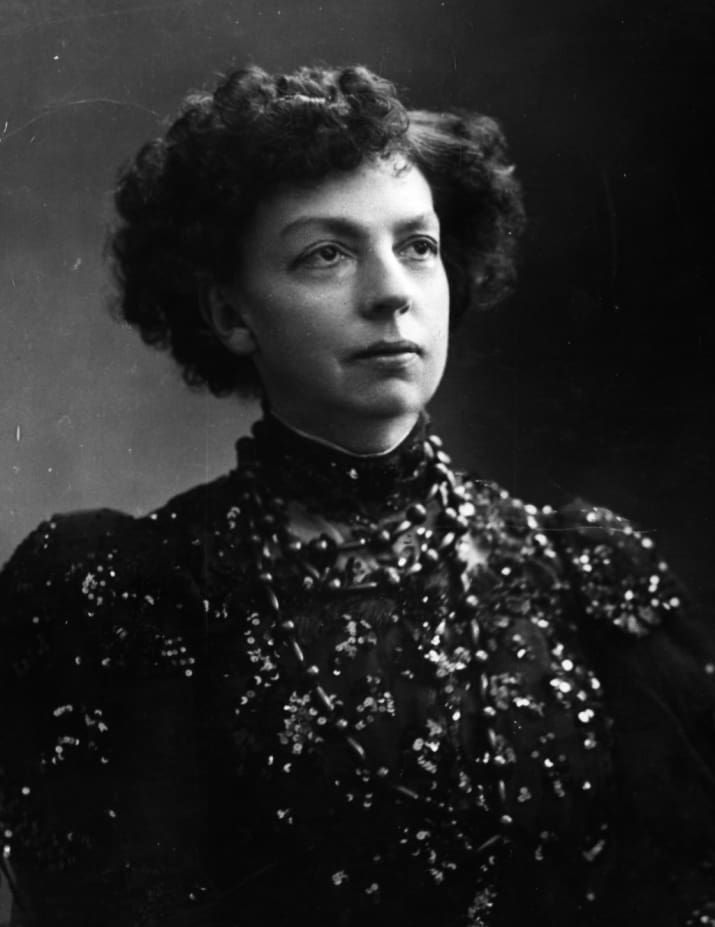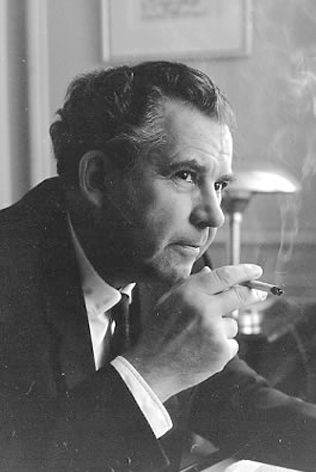This Week in Classical Music: August 7, 2023. Chaminade and Jolivet. Two French composers were born this week, Cécile Chaminade, on August 8th of 1857, and André Jolivet, on the same day but in 1905. We suspect that in the last three years the music of Chaminade has been played more than throughout the previous 100: we live in the era of Wokeness when a composer’s gender (or race) is considered more important than his or her talent, and as there is a limited number of female composers, even the salon music of Chaminade becomes popular among presenters and performers, if not necessarily the listening public. This is not to say that in the past, women composers weren’t discriminated against: Chaminade, for example, was accused by her contemporary music critics of being both too feminine in her songs and lyrical piano pieces, and too masculine in the larger, more energetic pieces, such as the Konzertstück, (you can listen to it here). We don’t find anything excessively “masculine” in the piece, we’re not even sure what that term means when applied to music – it would’ve never been used by our contemporaries while discussing the music of Jennifer Higdon, Shulamit Ran, Libby Larsen, or Augusta Read Thomas. We just don’t find the Koncertstück very interesting – it has lots of trills in the style of the worst of Liszt and not much real musical material. (In this recording James Johnson plays the piano, the Royal Philharmonic Orchestra is conducted by Paul Freeman). Chaminade’s music became popular not only in her native France but also in England and the US in the 1890s, and that continued for another 20 years after which the interest in her music practically disappeared – her salon pieces clearly became obsolete. Chaminade lived till 1944, the last years in relative obscurity. She composed around 400 short piano pieces and songs, some of which are not without their charm. Here Anne Sofie von Otter sings her short song L'anneau d'argent. Bengt Forsberg is on the piano.
In the last three years, there has been no resurgence of interest in the music of André Jolivet, even if of the two, he is the more interesting, more inventive composer. We have several of his pieces in our library and have written about him more than once (for example, here). A prolific composer, Jolivet wrote several concertos. One of them was for the Ondes Martenot, an analog synthesizer invented in 1928 by Maurice Martenot; the sound of the Ondes (waves in French) is somewhat similar to that of a Theremin, another electronic instrument invented by the Russian researcher Leon Theremin around the same time). Jolivet also composed three symphonies, chamber and keyboard music, operas, and many songs. Here, from 1954, is Jolivet’s unusually scored Basson Concerto with the string orchestra, piano and harp (André Jolivet conducts the Jean-François Paillard Chamber Orchestra; Maurice Allard is the bassoonist).
And speaking of French music and musicians: the wonderful violinist Ginette Neveu was born on August 11th of 1919. You can read about her here.
Chaminade and Jolivet, 2023
This Week in Classical Music: August 7, 2023. Chaminade and Jolivet. Two French composers were born this week, Cécile Chaminade, on August 8th of 1857, and André Jolivet, on the same day but in 1905. We suspect that in the last three years the music of Chaminade has been played more than throughout the previous 100: we live in the era of Wokeness when a composer’s gender (or race) is considered more important than his or her talent, and as there is a limited number of female composers, even the salon music of Chaminade becomes popular among presenters and performers, if not necessarily the listening public. This is not to say that in the past, women composers weren’t discriminated against: Chaminade, for example, was accused by her contemporary music critics of being both too feminine in her songs and lyrical piano pieces, and too masculine in the larger, more energetic pieces, such as the Konzertstück, (you can listen to it here). We don’t find anything excessively “masculine” in the piece, we’re not even sure what that term means when applied to music – it would’ve never been used by our contemporaries while discussing the music of Jennifer Higdon, Shulamit Ran, Libby Larsen, or Augusta Read Thomas. We just don’t find the Koncertstück very interesting – it has lots of trills in the style of the worst of Liszt and not much real musical material. (In this recording James Johnson plays the piano, the Royal Philharmonic Orchestra is conducted by Paul Freeman). Chaminade’s music became popular not only in her native France but also in England and the US in the 1890s, and that continued for another 20 years after which the interest in her music practically disappeared – her salon pieces clearly became obsolete. Chaminade lived till 1944, the last years in relative
on the same day but in 1905. We suspect that in the last three years the music of Chaminade has been played more than throughout the previous 100: we live in the era of Wokeness when a composer’s gender (or race) is considered more important than his or her talent, and as there is a limited number of female composers, even the salon music of Chaminade becomes popular among presenters and performers, if not necessarily the listening public. This is not to say that in the past, women composers weren’t discriminated against: Chaminade, for example, was accused by her contemporary music critics of being both too feminine in her songs and lyrical piano pieces, and too masculine in the larger, more energetic pieces, such as the Konzertstück, (you can listen to it here). We don’t find anything excessively “masculine” in the piece, we’re not even sure what that term means when applied to music – it would’ve never been used by our contemporaries while discussing the music of Jennifer Higdon, Shulamit Ran, Libby Larsen, or Augusta Read Thomas. We just don’t find the Koncertstück very interesting – it has lots of trills in the style of the worst of Liszt and not much real musical material. (In this recording James Johnson plays the piano, the Royal Philharmonic Orchestra is conducted by Paul Freeman). Chaminade’s music became popular not only in her native France but also in England and the US in the 1890s, and that continued for another 20 years after which the interest in her music practically disappeared – her salon pieces clearly became obsolete. Chaminade lived till 1944, the last years in relative obscurity. She composed around 400 short piano pieces and songs, some of which are not without their charm. Here Anne Sofie von Otter sings her short song L'anneau d'argent. Bengt Forsberg is on the piano.
obscurity. She composed around 400 short piano pieces and songs, some of which are not without their charm. Here Anne Sofie von Otter sings her short song L'anneau d'argent. Bengt Forsberg is on the piano.
In the last three years, there has been no resurgence of interest in the music of André Jolivet, even if of the two, he is the more interesting, more inventive composer. We have several of his pieces in our library and have written about him more than once (for example, here). A prolific composer, Jolivet wrote several concertos. One of them was for the Ondes Martenot, an analog synthesizer invented in 1928 by Maurice Martenot; the sound of the Ondes (waves in French) is somewhat similar to that of a Theremin, another electronic instrument invented by the Russian researcher Leon Theremin around the same time). Jolivet also composed three symphonies, chamber and keyboard music, operas, and many songs. Here, from 1954, is Jolivet’s unusually scored Basson Concerto with the string orchestra, piano and harp (André Jolivet conducts the Jean-François Paillard Chamber Orchestra; Maurice Allard is the bassoonist).
And speaking of French music and musicians: the wonderful violinist Ginette Neveu was born on August 11th of 1919. You can read about her here.